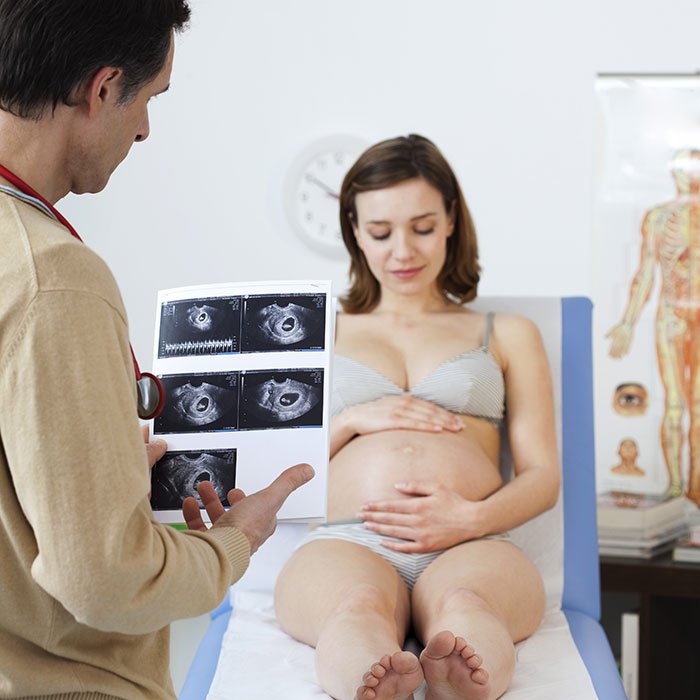Since Facebook and Apple have announced their willingness to finance the freezing of oocytes of their employees for professional convenience, the controversy is in full swing. Having children later is not necessarily a breakthrough for many feminists who denounce this right, a system that does not address the stigma of motherhood still too often seen as a burden in the business. The opportunity for marieclaire.fr to interview Cécile Gallo, gynecologist-endocrinologist, infertility specialist at IVI Valence to understand why and who are the women who use it, and especially what are their "real" chances of success. to have a baby ... with a medical technique that remains quite complex .
Désirée de Lamarzelle: What is the profile of patients who use oocyte freezing?
Cécile Gallo: We can establish a profile of women whose average age is around 36 years. They are single - or not - but not in a stable relationship, but their professional position is very strong with positions of high responsibility ((doctor, journalists, high official ...) They are financially rather "at ease" even if for some the freezing of oocytes requires a financial effort.
What is the cost of this medical procedure?
That's about 2500 euros, a price that includes the process of stimulation, puncture and vitrification (freezing) oocytes for 5 years. Beyond that, if the patient wishes to keep her eggs, she can prolong their conservation, the cost of which is about 200 euros per year. It should be about 200 euros per year. This price does not count the injection treatment at home, where it takes between 800 and one thousand euros.
Is there an age limit for egg freezing?
No limit per se, but it is advisable to do it before 35 years old, because it increases the probabilities of success globally. It must be remembered that the chances of having a child depend on the age because the quality of the oocyte punctured decreases with age. The ovarian reserve, both quantitative and qualitative, decreases with age, which explains why women are less fertile after 35 years and that IVF (in vitro fertilization) will be less likely to succeed. The goal is to have a baby and for this the quality of the oocyte is crucial because the older the age advances is the risk of chromosomal abnormalities and therefore miscarriages.
What are your restrictions?
At age 45, the freezing of oocytes is excluded, and after 40 years is case by case, for example we have already done with a patient of 42 years who had already had a child by this procedure and so he It was not a question of preventing him, but of informing him of the lowest chances of success. We can consider that she was very lucky.
When the odds are low but not zero, we give the patient a chance but we do not read false promises. In the best case, with frozen oocytes before 35 years, the chances of success are about 50% by embryo transfer. But this is a number that must always be nuanced because it is case by case and it depends on the age, the number of oocytes ...
But if it's an alternative for the patients I meet, this is rarely a career choice ... the risk is too great!
We can not offer guarantees, there is a risk that it does not work!
In which case can one freeze one's eggs in France?
In France it is forbidden for "reasons of convenience" that concern the prevention of the effects of age on ovarian aging, but authorized for IVF patients, oocyte donations and women suffering from certain diseases ( cancer, endometriosis ...).
The countries that have legalized egg vitrification are Spain, Italy, Great Britain, the United States, Canada and Japan.
How is the medical procedure for freezing oocytes?
The first appointment is at the clinic where we study the situation and its feasibility (chances of success). Then the stimulation takes place in France (follow-up, blood test, ultrasound) if the patient is French.
The second appointment is to do the last ultrasound, then the puncture, under anesthesia, two days later. The patient leaves the next day.
The medical procedure lasts about 15 days, ovarian stimulation begins on the second day of menses and lasts an average of 9 to 10 days and the oocyte retrieval is performed two days after the last ultrasound.
Can one proceed to the IVF of its oocytes where one wants?
The oocytes belong to the patients and they can therefore dispose of them in any center in the European Union for fertilization, but the result depends very much on the technique used and the experience of the center. It should be noted that devitrification (defrosting) is the most delicate part of the procedure, so it is advisable to do this where you have been punctured. And in a center that has a lot of experience in this medical field.
Thanks to Cécile Gallo, gynecologist-endocrinologist, infertility specialist at IVI Valence


